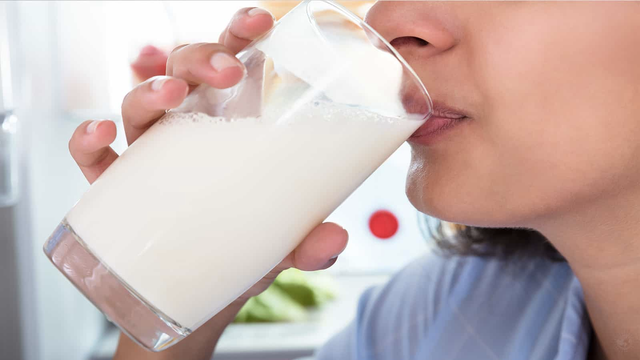Three considerations for drinking milk
We drink milk almost every day, including our parents, who often drink milk for their children. Milk is indeed an essential food in people's lives.
It is nutritious, not expensive, and easy to eat, but if you "boil and drink", you will make some "reasonable" mistakes, which will greatly reduce the nutrition of milk.
Here are three precautions for everyone to avoid making mistakes:
The thicker the milk, the better
Some parents believe that the thicker the milk, the more nutrition the child will get. This is unscientific.
The so-called thick milk refers to adding more milk powder to milk and adding less water to make the concentration of milk exceed the normal ratio standard.
Some parents worry that fresh milk is too runny, so they add milk powder. In fact, the concentration of milk that infants and young children drink should be proportional to the age of the child, and its concentration should gradually increase according to the age of the month.
Even for newborns within one month, the proportion of mixed water in milk should be gradually reduced according to digestion. If infants and young children often eat thick milk, it can cause diarrhea, constipation, loss of appetite, and even refuse to eat.
As time goes by, not only will the weight not increase, but it will also cause acute hemorrhagic enteritis. This is because the organs of infants and young children are very fragile and cannot bear a heavy burden. If the milk powder is too thick or mixed with fresh milk, the nutrient concentration will increase, exceeding the digestion and absorption limit of the infant's gastrointestinal tract. Not only can it not be digested, but it may also damage the digestive organs. Therefore, if you feed infants and young children with milk, you should decide how much water to add based on the quality of the milk and the age of the child.
The more sugar the better
Unsweetened milk is not easy to digest. This is the "consensus" of many parents. Sugar is added to increase the calories provided by carbohydrates, but it must be quantified.
Usually, 5 to 8 grams of sugar is added to every 100 milliliters of milk. If too much sugar is added, it will be harmful to the growth and development of infants and young children. Too much sugar enters the baby's body and retains water in the body, making the muscles and subcutaneous tissues soft and weak. Such a baby looks fat, but the body's resistance is very poor.
What kind of sugar should be added to milk? The best is sucrose. After sucrose enters the digestive tract and is broken down by the digestive juice, it becomes glucose and is absorbed by the body. Some parents buy glucose specifically for their children, which is unnecessary. The sweetness of glucose is low. If it is used too much, it is easy to exceed the prescribed range, and children will not eat because it is not sweet.
There is another question of when to add sugar. Some parents heat sugar and milk together, so that the lysine in the milk will react with sugar at high temperatures (80°C to 100°C) to produce the harmful substance glycosyllysine. Not only will this substance not be absorbed by the human body, it can also be harmful, especially for children. Therefore, the boiled milk should be heated to 40°C~50°C before the sugar can be dissolved in the milk.
Milk and Chocolate
Some parents believe that since milk is a high-protein food and chocolate is an energy food, it must be beneficial to consume both at the same time. But in fact it is not the case. Liquid milk and chocolate will cause a chemical reaction between the calcium in the milk and the oxalic acid in the chocolate to produce "calcium oxalate." As a result, nutrient calcium has become a harmful substance to the human body, leading to calcium deficiency, diarrhea, delayed development of children and children, dry hair, easy fractures, and increased incidence of urinary tract stones.
